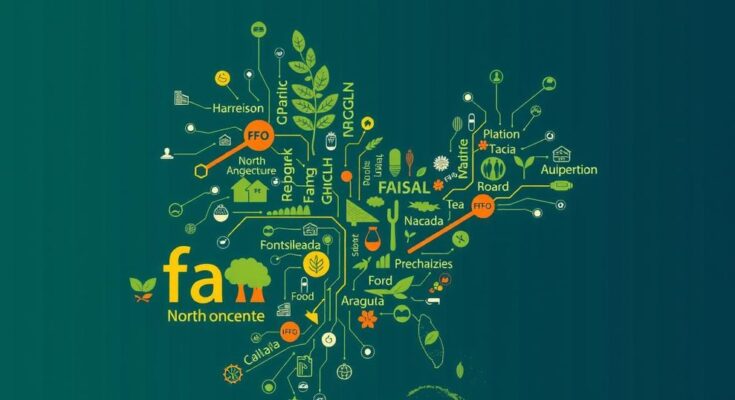The UN report on nitrous oxide emissions reveals urgent concerns regarding climate change, ozone layer preservation, and public health. It states that N₂O is a powerful greenhouse gas, with emissions rising alarmingly, and highlights necessary actions to reduce them by over 40%. The report emphasizes the importance of sustainable practices in agriculture to manage nitrogen efficiently and safeguard human health.
A recent United Nations report reveals that nitrous oxide (N₂O) emissions are soaring, posing an existential threat to the 1.5°C climate target, the ozone layer, and public health. The report, published by the United Nations Environment Programme (UNEP) and the Food and Agriculture Organization (FAO), launched at COP29 in Baku, highlights that N₂O is 270 times more effective than carbon dioxide at trapping heat and accounts for about 10% of global warming since industrialization. The emissions primarily stem from agricultural practices like synthetic fertilizer use and manure and are the leading substance causing ozone depletion. The assessment details that without immediate intervention, there is no feasible pathway to limit global warming to 1.5°C. It offers practical strategies to reduce N₂O emissions by over 40%, promoting sustainable agricultural practices to enhance nitrogen efficiency and mitigate excessive nitrogen application. By abating N₂O, the world could prevent up to 20 million premature deaths linked to poor air quality by 2050 and can equivalently cut emissions of 235 billion tonnes of carbon dioxide by 2100, beneficial for our health, climate, and ecosystems. The report stresses that swift, ambitious action on N₂O is vital for achieving sustainable development goals as outlined in the Paris Agreement. Recommendations include transforming food systems, improving nitrogen management, and addressing emissions from industries that disturb the nitrogen cycle. There is a call for combining nitrogen oxide and ammonia reductions, which would simultaneously enhance air and water quality. Consequently, immediate action is necessary to combat the super pollutant N₂O and further protect both human health and the environment.
Nitrous oxide is an anthropogenic greenhouse gas that significantly contributes to climate change and ozone layer depletion. Its growing emissions, particularly from agricultural sources, are raising alarms among scientists and policymakers due to their detrimental impact on global warming and public health. The need for urgent solutions to tackle N₂O emissions forms the base of the recent report released by the United Nations. The report underscores the significance of integrating nitrogen management strategies within agricultural practices, fostering a holistic approach to sustainability.
The newly released report by the UN underscores the urgent need to address the rising nitrous oxide emissions crisis. With N₂O’s potential to accelerate climate change and degrade the ozone layer, the findings stress that practical strategies can lead to significant reductions in emissions. Immediate action is essential not only for achieving international climate agreements but also for ensuring public health and environmental protection. The focus on sustainable agricultural practices and nitrogen management emerges as critical for mitigating these severe threats.
Original Source: www.fao.org




